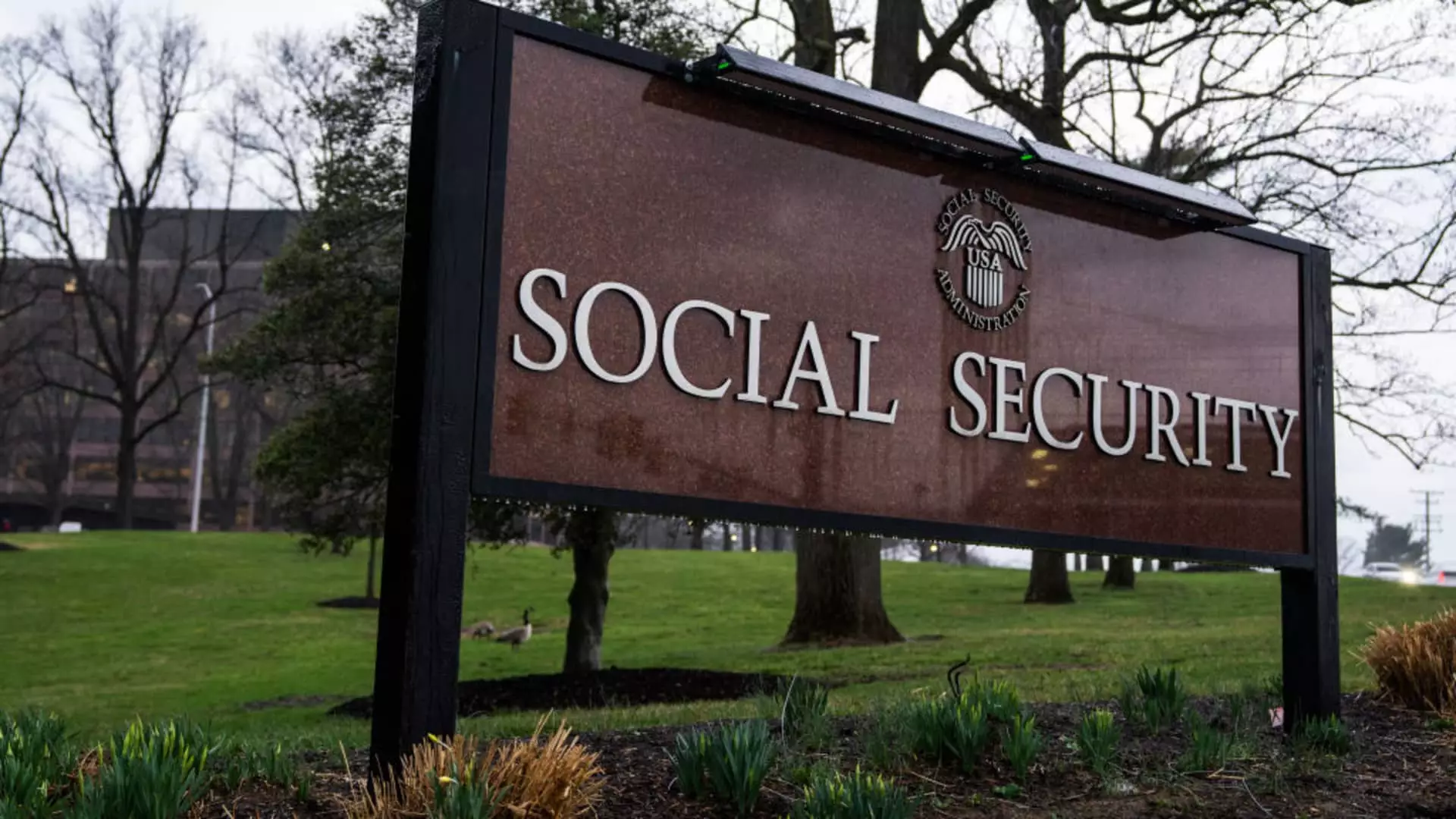A recent federal court ruling has sent shockwaves through the Social Security Administration (SSA) and beyond, temporarily blocking the Trump administration’s Department of Government Efficiency (DOGE) from accessing personal data. The ruling, issued by Judge Ellen Lipton Hollander, is not merely about data privacy—it has far-reaching implications for millions of Americans reliant on social security benefits. As the acting commissioner, Lee Dudek, expressed concern over potential disruptions to services, it’s clear that the stakes are much higher than bureaucratic inefficiencies. We are witnessing a critical juncture where legal decisions intersect with personal livelihoods, and the ramifications are anything but straightforward.
In a time where trust in government institutions is fragile, the implications of this order cannot be underestimated. The SSA is a lifeline for many, providing essential retirement and disability benefits to millions each month. Hollander’s ruling to prohibit access for this unofficial entity, led by Tesla CEO Elon Musk and his associates, raises fundamental questions about the integrity of our social safety nets when intertwined with private sector interests.
The Controversy Behind DOGE: A Symbol of Corporate Overreach?
DOGE’s creation under the Trump administration raises eyebrows. This organization is not classified as an official department but is helmed by individuals with considerable political sway, like Musk. The mosaic of business and government in this situation is troubling. It’s reminiscent of a dystopian reality where private interests infiltrate public safety programs, breeding a justified fear among the populace.
Musk’s role complicates matters further. As a special government employee—an ambiguous status—his team’s access to sensitive Social Security data signals a concerning trend: when does corporate ambition overshadow the sanctity of individual citizens’ privacy? The fact that this ruling is seen as a potential threat to essential services heightens the stakes even more. A partnership like this could be perceived as corporate encroachment, with the SSA’s reliability hanging in the balance while the whims of a tech mogul influence the course of public policy.
Chaos Amid Mismanagement: Dudek’s Leadership Under Fire
Adding fuel to the fire is Lee Dudek, who has come under relentless scrutiny for his leadership amid this crisis. Reports of chaos and mismanagement within the SSA under his tenure have not gone unnoticed. In a striking assertion, Lee Saunders, president of the American Federation of State, County and Municipal Employees, claimed that Dudek has left the agency “on the brink” of failure, a statement that reflects widespread discontent surrounding his ability to lead.
To think that an organization which has never missed a paycheck in its nearly 90-year history is now vulnerable due to the leadership’s blunders is alarming. Dudek himself has acknowledged his missteps, apologizing to staff and promising to improve. Yet the question remains: are apologies enough when the consequences of inaction could have dire implications for the millions who depend on Social Security benefits?
Political Turmoil: A Divided Congress and the Backlash against Service Limitations
The ruling has ignited fierce political rhetoric between both sides of the aisle, exacerbating the existing tensions surrounding Social Security reforms—or lack thereof. Congressman Richard Neal describes the crisis within the SSA as a “five-alarm fire,” indicating a situation teetering on the brink of catastrophe. It’s not just about bureaucratic inefficiencies; these changes affect some of the most vulnerable populations—seniors and people with disabilities.
On the other side of the spectrum, House Ways and Means Committee Chairman Jason Smith dismisses concerns raised by his Democratic counterparts as mere “scaremongering.” This dismissive attitude towards potential service limitations and changes that might effectively act as back-door benefit cuts is distressing. Anyone watching closely cannot ignore that the debate over accessibility and efficiency in government services often devolves into a political football, sidelining the very real implications for everyday Americans.
The Urgent Call for Reform and Accountability
In this climate of uncertainty, it is essential that accountability and reform become the guiding principles for any changes that arise within the SSA. With implications this severe, are we prepared to hold bureaucracies accountable while ensuring that public resources are safeguarded from corporate stakeholders? The ruling has emerged as a crucial opportunity for renewed dialogue around government efficiency and citizen protection.
The message is clear: the intersection of technology, government, and social welfare needs strict scrutiny and reform. The protection of personal data should never be compromised for corporate interests, and the leadership of the SSA must prioritize the well-being of the public over political gamesmanship. The battle for transparency and the right to privacy is now more pertinent than ever.

